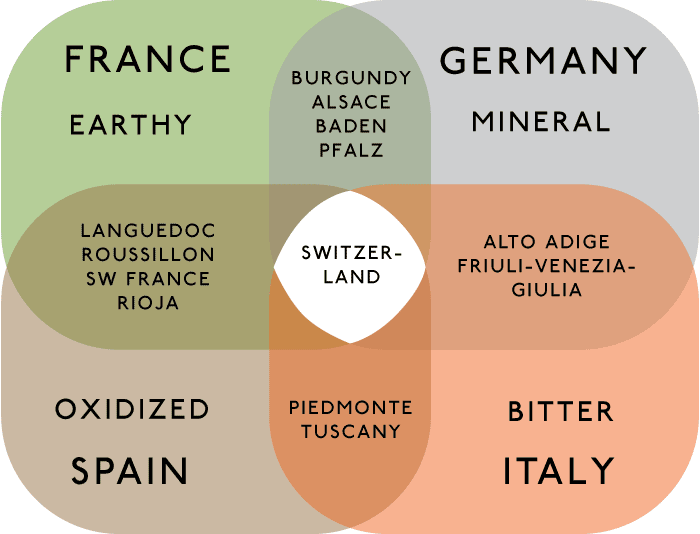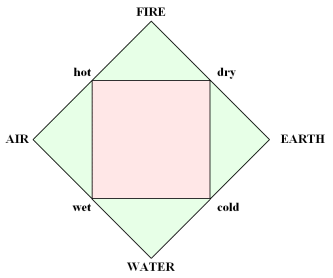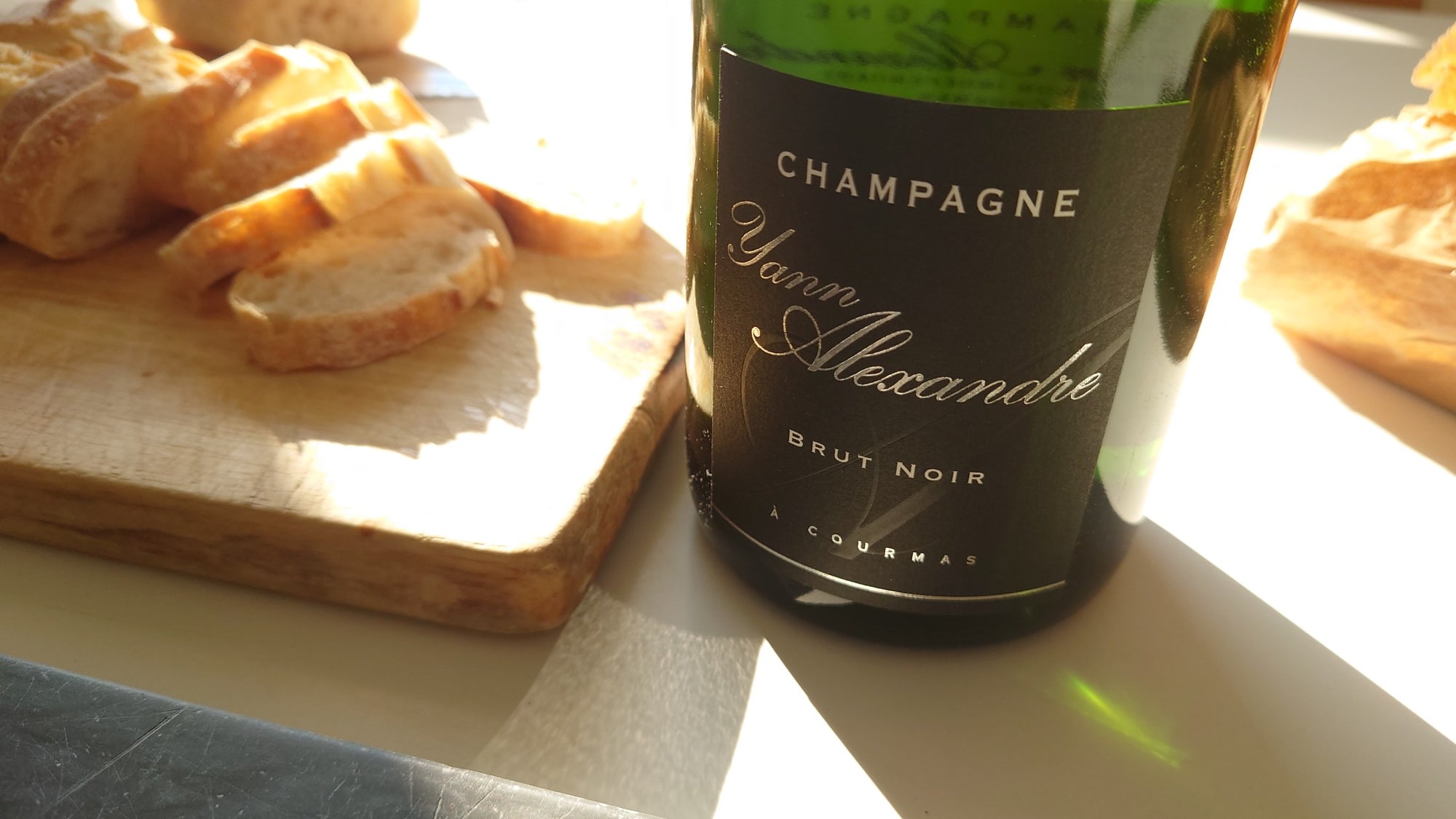
I just got back from a trip to Rome with a bitter taste in my mouth. No, it wasn’t a bad trip or anything like that. It’s just that amazing bitter aftertaste in so many Italian wines both red and white. Is there any country that does bitter better than the land of Campari and coffee? The UK, with its bitter pale ales (known simply as 'bitter') tonic water, marmalade and general outlook on life may outdo them, but the flavor doesn't extend to the few wines it produces. It got me thinking; if bitter is a flavor so associated with Italy and their wines, what flavors are characteristic of other classic wine producing countries? Since I think in charts, the Venn diagram above is the result of this line of thought and is very loosely based on the Greek classical elements of earth, air, fire and water. In a similar way, it's an archaic way of thinking about flavors but flavor chemistry still doesn't seem too advanced. Otherwise artificial strawberry Jello would seem more convincing!
 Bitter – Italy Not all Italian wines have a bitter nuances but a remarkable number do. Perhaps more remarkable is that the bitterness is controlled remarkably well. Bitterness comes from the stems, seeds and skins where tannins also come from, so it seems that it would also be accompanied by some astringency. But this is not the case; either the bitterness is characteristic of the grape variety used, in the wine making process or a little of both. I would tend to think it's a little of both as the Italians really seem to have bitter perfected. One standout on the trip was a 2004 Sergio Mottura "Muffo"
Bitter – Italy Not all Italian wines have a bitter nuances but a remarkable number do. Perhaps more remarkable is that the bitterness is controlled remarkably well. Bitterness comes from the stems, seeds and skins where tannins also come from, so it seems that it would also be accompanied by some astringency. But this is not the case; either the bitterness is characteristic of the grape variety used, in the wine making process or a little of both. I would tend to think it's a little of both as the Italians really seem to have bitter perfected. One standout on the trip was a 2004 Sergio Mottura "Muffo"  produced with gotrytized Grechetto grapes, it was very Sauternes-like but with apricot, peach and orange peel flavors. But the amazing and wonderfully unusual part was the very long, bitter orange finish - who needs a Campari after this wine?!
produced with gotrytized Grechetto grapes, it was very Sauternes-like but with apricot, peach and orange peel flavors. But the amazing and wonderfully unusual part was the very long, bitter orange finish - who needs a Campari after this wine?!
Oxidized – Spain At the Wines from Spain convention last month in London, I attended a tasting seminar “What Place is there for Tradition in the Modern Spanish Wine World?” The wines selected included an 1981 Lopez de Heredia Gran Reserva Blanco  and 3 Sherries. There really wasn’t any conclusion about the role of tradition today but there was a definite consensus that tradition in Spain means oxidation. Two Hidalgo Manzanillas were compared to illustrate this: the fresher cleaner style La Gitana
and 3 Sherries. There really wasn’t any conclusion about the role of tradition today but there was a definite consensus that tradition in Spain means oxidation. Two Hidalgo Manzanillas were compared to illustrate this: the fresher cleaner style La Gitana is made for the contemporary palate but would be considered much too young to previous generations of Sherry drinkers; they would have preferred the Pastrana
is made for the contemporary palate but would be considered much too young to previous generations of Sherry drinkers; they would have preferred the Pastrana , a Manzanilla Pasada that has some age and oxidation on it. Lopez de Heredia was presented as a link to the history of Spanish winemaking with their oxidative style earning the respect of enthusiasts if not exactly the contemporary palate.
, a Manzanilla Pasada that has some age and oxidation on it. Lopez de Heredia was presented as a link to the history of Spanish winemaking with their oxidative style earning the respect of enthusiasts if not exactly the contemporary palate.
Mineral – Germany Germany isn’t the only country with mineral qualities in their wine (that’s why it’s a Venn diagram with overlaps, people!) but slatey steely Riesling seems to make it a hub of minerality.
Earthy – France Terroir is French for soil. Even if you believe that terrior is a bunch of nonsense, it's difficult to deny the soft earthy pleasures of many traditional French wines. Besides, what country has ever has really ever embraced "poopy" as a positive flavor description? Viva la France!
Switzerland fits neatly in the center as a neutral zone, hygenically canceled out by the overlaps. Yes, how convenient! I base this not so much on my limited experience with Swiss wines but on three factors: 1. Switzerland’s tradition of neutrality; 2. I have an uncle who claims Swiss whites taste like rain; 3. my son’s godfather is Swiss and a teetotaler. In full disclosure, I have to say that I'm a old world kind of guy and thank Bacchus for mineral, earthy, oxidixed and bitter flavors. Fruit is nice but funk gives wine soul. 


Comments
[…] More explanation here. […]
Very interesting. would the the new world then be simply “Fruit”? Perhaps an oversimplification but in keeping with the general genralization!